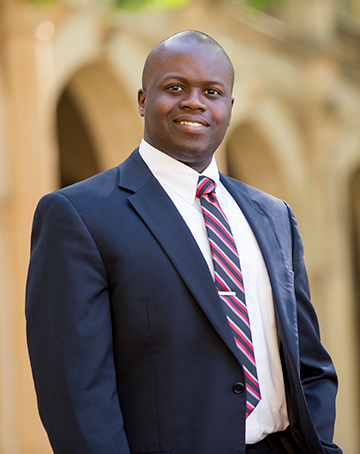TTUHSC Responds To Mental Health Needs in West Texas (Continued)
Texas Tech Mental Health Institute

“There is a unique opportunity here because we have a notable general academic university
and a health sciences center both involved in activities related to mental health,
yet there is limited collaboration and coordination,” said Keino McWhinney, MPP, director
of the Institute.
The leadership came up with the Institute as a multidisciplinary organization for all behavioral health initiatives and activities to funnel through. The challenge is in forming an interprofessional model, which, according to McWhinney, isn’t anything new.
“It’s not a unique or new challenge — it’s an old challenge — but it’s a difficult one because universities are often siloed,” McWhinney said. “There’s a reason why you specialize and have a specific degree or area of focus. Within mental health there are subspecialties or subgroups with distinctive areas of focus, and these groups do not always agree on a singular approach to a problem. The Institute has the ability to bring these diverse thinkers together. Faculty working collaboratively on different aspects of an identified problem are able to share resources forming a solution neither group may have explored on their own.”
Mental Health Coalition
When Calloway came to TTUHSC a little more than four years ago, the first thing she
noticed were the resources.
“They were just phenomenal in mental health across the entire TTU system, and I selfishly thought if I could get to know individuals in different schools and departments in mental health, it would build up the resources I could call on for the (PMHNP) program — plus it would help facilitate research since the mental health field is interprofessional in nature,” she said. “Putting the mental health coalition together has enabled us (as faculty) to find where we have similar interests, and it has also assisted in letting people know what was already in the works at both TTUHSC and (TTU).”
The coalition’s success was dependent on a community focus rather than an academic one, Calloway added, which involved community leadership.
The coalition is co-chaired by Annette Gary, RN, PhD, (Nursing ‘98, ‘93, ‘90, ‘84) assistant professor in the School of Nursing and Beth Lawson, MBA, CEO of StarCare Specialty Health Systems.
Gary, who spent 12 years as the associate CEO for program operations for StarCare prior to moving to TTUHSC, has always felt a passion to serve in the mental health field.
“I’ve always been interested in mental health,” Gary said. “In my case, I had a family history of people who had depression, including a friend in high school whose mother had schizophrenia, and it was a really difficult thing for the family. After witnessing what people with mental illness and their families have to endure, I felt a strong need to serve those people.”
Coalition Meeting Information
The Mental Health Coalition meets once a quarter on the first Thursday of the month. Their 2019 meetings will take place in February, May, August and November. If you would like to participate, email Annette Gary at annette.gary@ttuhsc.edu for time and location.
Serving patients, while educating providers and the community at large with these initiatives in mental health, brings TTUHSC one step closer to fulfilling the university mission and strategic objectives as a collaborative entity. As Tedd L. Mitchell, TTU System chancellor stated in a roundtable discussion in 2018, “We have to work together to survive together, and our communities and patients deserve the best treatment.”

